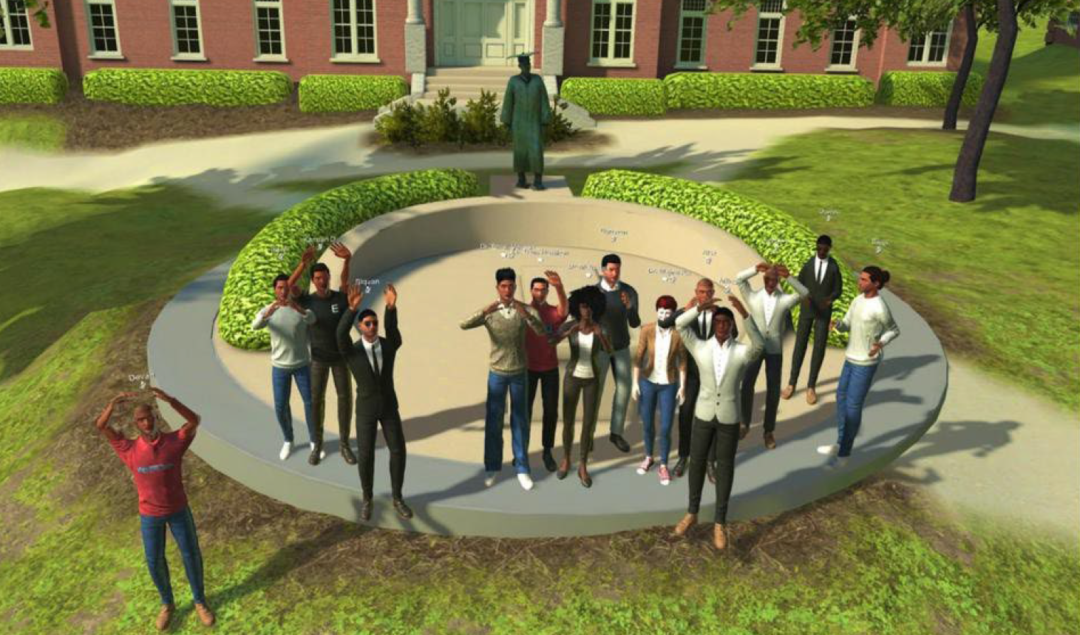Morehouse College’s Metaversity Campus Is Ushering In A New Educational Era

Morehouse College has become the first college to offer classes in the metaverse.
By donning a headset, students at the Atlanta-based liberal arts HBCU can immerse themselves in past, present, and future worlds.
Dr Muhsinah Morris PhD spearheaded Morehouse College’s metaversity campus in partnership with VictoryXR, with funding from Meta, Southern Company, Unity, T-Mobile For Business, National Science Foundation (NSF), and Qualcomm.
Immersive learning
Morris taught an advanced inorganic chemistry lab virtually to a dozen students as part of a pilot last spring. She believes the metaverse’s experiential and active learning environment will transform education.
“The metaverse is what I call the world’s greatest playground. But besides that, what it really is, is the next iteration of the web,” Morris told Atlanta’s WSB-TV.
“We can give that to our students. And it’s such a gift because we had to read encyclopedias, right? And that information was stagnant. This is happening in real-time in three dimensions.”
“You want to climb mountains? Let’s go, you know? Let’s go to Mount Everest.”
“It’s a whole new experience, and you’re meeting and experiencing things first-hand, such as the Underground Railroad,” said Morehouse student Tahj Henry Jackson.
“We can see that anything can happen, right?” said another student, Sid King.
The metaverse presents opportunities for creativity, collaboration, and innovation, as students use cutting-edge technology to connect with people across the globe.
“It’s also about cultivating technologically savvy developers within specific disciplines,” said Morris. “Everyone regardless of if they declare a major in computer science or software engineering should have the foundational skills that allow them to code and create.”
“We’re getting in at a time where this is still new, and they still have an opportunity to build,” she told The Plug.
“My motto for our campus is to build the table. We don’t want a seat at anyone else’s table. We want to build it because I think our students deserve that.”
The future of the metaversity
Sci-fi writer Neal Stephenson coined the term metaverse in his 1992 book Snow Crash to describe an alternative space in which to escape reality. Today, virtual and augmented reality gaming, Zuckerberg avatars, and a blurring of reality and digital worlds characterize the metaverse.
While this space boasts untapped potential for education, it also raises concerns about the impact on young people’s mental health and highlights the need to prioritize social and emotional learning.
Still, the metaverse will likely shape future education. According to The Plug, other HBCUs embracing the metaverse include Clark Atlanta University, Meharry Medical College, and Howard University.
Moreover, it is estimated that 1 in 4 of us will spend at least an hour a day in the metaverse by 20206, and the metaverse economy is expected to be worth $13 trillion industry by 2030.
That being said, Meta’s recent losses are a stark reminder that we still have a few hurdles to overcome.



